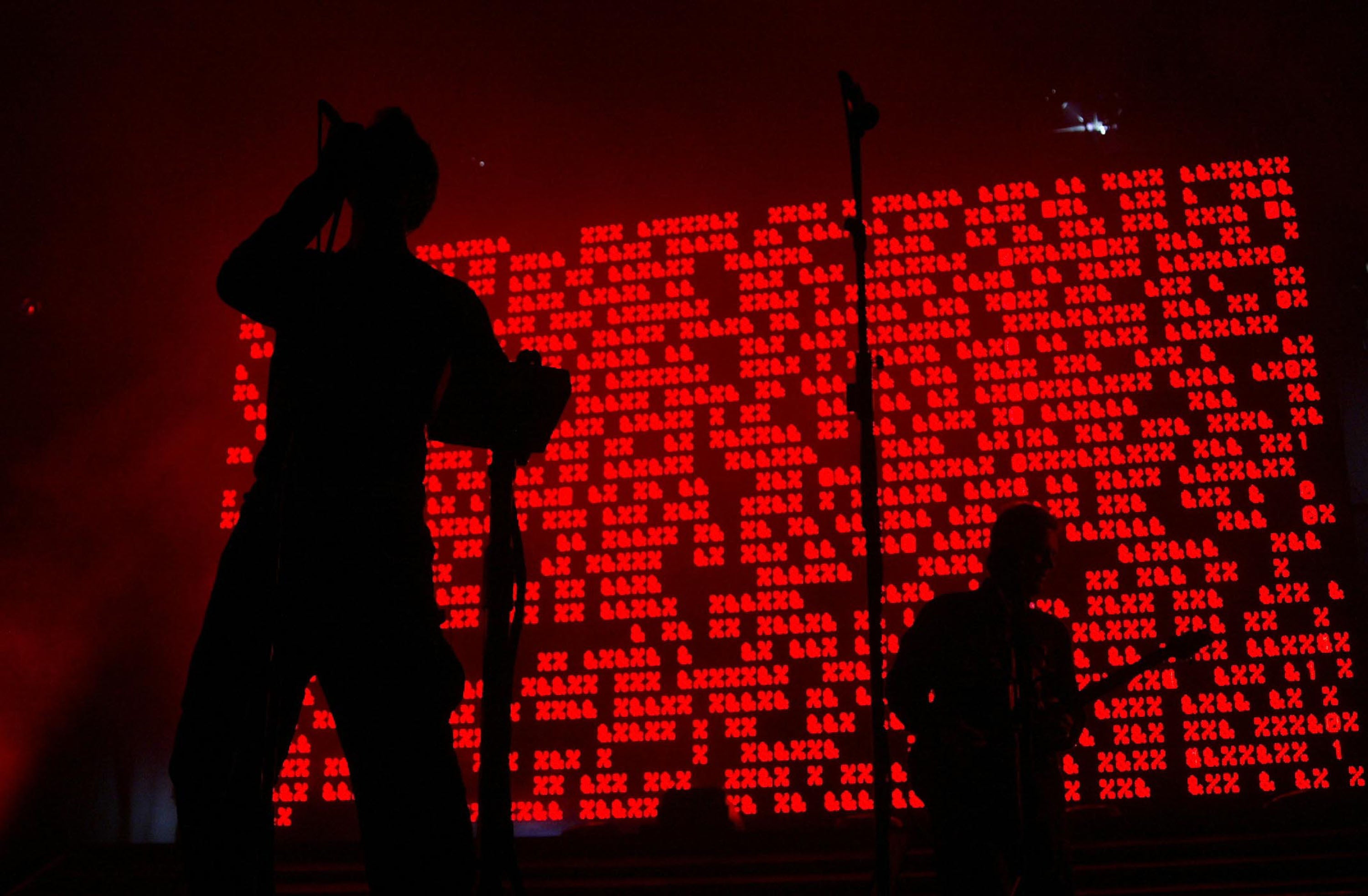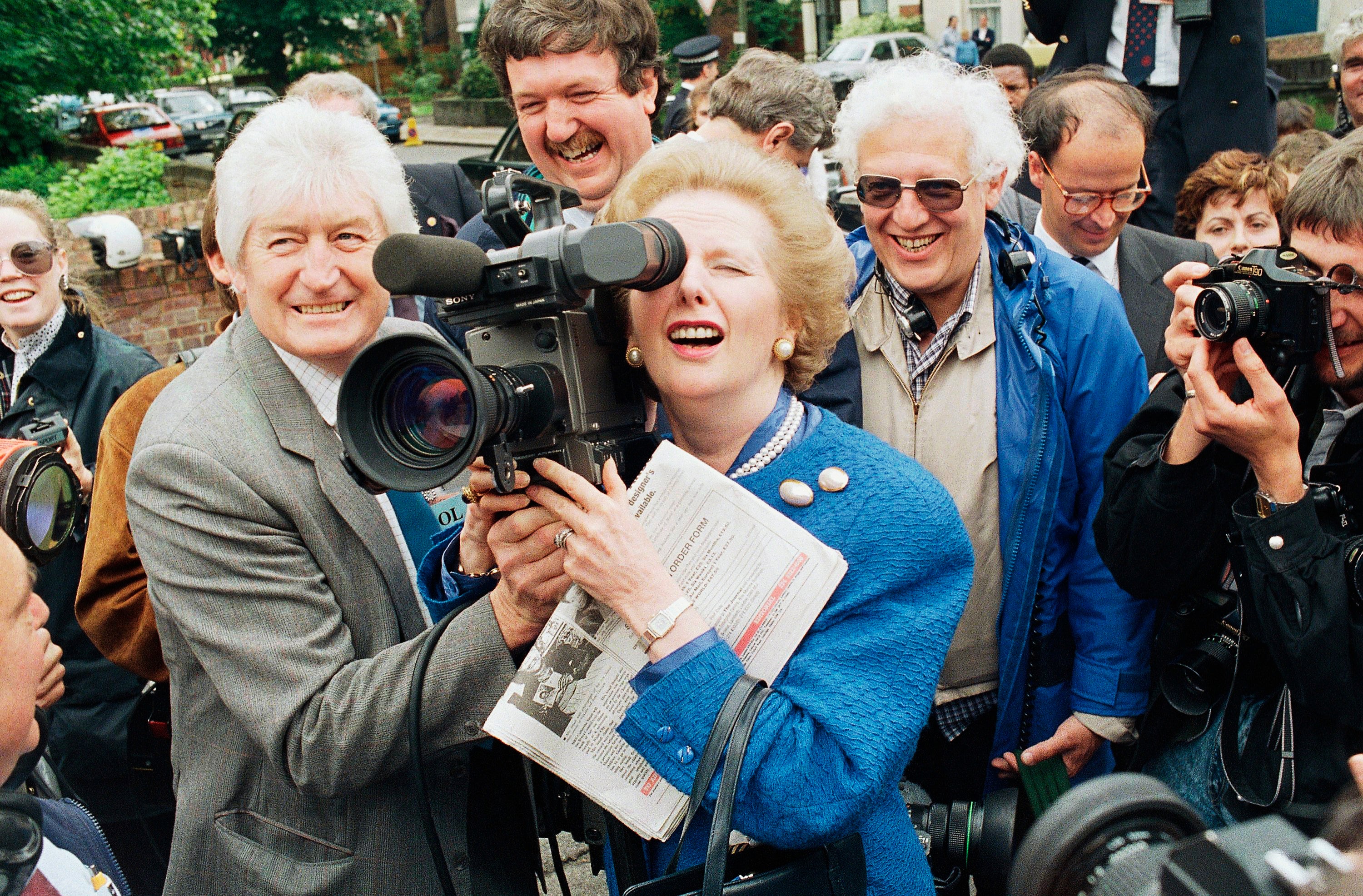Misunderstood masterpiece or unmitigated disaster? Massive Attack’s 100th Window at 20
The trip-hop collective’s fourth album left both fans and critics scratching their heads. But, with the project’s themes of digital paranoia, political tumult and anti-war sentiment, Ed Power argues that it’s never been more relevant

Twenty years ago, Massive Attack’s golden streak went up in smoke. Up to that point, the Bristol trip-hop innovators had surfed a never-ending tide of acclaim. With their first three albums, they were heralded as mould-breakers and miracle workers.
Then, on 10 February 2003, came their fourth. 100th Window was feverish and uneasy, a sealed puzzle box that made few concessions to casual listeners. Critics balked, fans scratched their heads. In a finger-snap, Massive Attack had surrendered their status as the most bullet-proof band in Britain.
But as the LP’s 20th anniversary approaches, there is surely a case to be made for 100th Window as a misunderstood masterpiece. True, it’s harder work than any of the Nineties trilogy of Blue Lines (1991), Protection (1994) and Mezzanine (1998). Choruses are at a premium; the smooth grooves that were once a Massive Attack signature are replaced by barb-wire guitars and beats that rumble like depth charges (a gear-shift foreshadowed by Mezzanine’s starker moments). And of course, it is an anomaly in that it is the work of just one member, Robert “3D” Del Naja – though he has always rejected the idea of it as a “solo record”.
Yet, in terms of capturing the spirit of its time, it is an essential entry in the band’s catalogue. They have released just one further record, 2010’s Heligoland, and are currently on hiatus due to a “serious illness” in the ranks. 100th Window is ripe for appraisal.
War drums in Iraq. The souring of Tony Blair’s New Labour dream of a brighter, better Britain. A slowly dawning realisation that the World Wide Web was about to scramble our brains. It’s all there. A bulldozer-load of dread and anxiety is shunted into songs such as opener “Future Proof”, where Del Naja ominously intones the line “We can be numb”. That neurotic sensibility is signposted in the title: “100th Window” is the notion in the field of computer security that, even if you put a bar across 99 out of 100 windows, there may still be a security breach on the 100th.
“The idea [is] that no matter how careful you are – no matter how many security devices you have on your windows – you will leave just one of them unprotected,” explained Del Naja on the Massive Attack website. “Everyone can and will know everything about you and there will be truly nowhere left to hide.”
In 2003, nobody much cared for the paranoia. “For an album that’s been almost five years in the making, it’s hard not to be underwhelmed by 100th Window, which seems to shrink back from the developments of its predecessor Mezzanine to a musical space of barely differentiated grey tones,” said The Independent. The late critic Andy Gill compared the listening experience to “peering at a watercolour from which all detail has been washed away”.
“The first two Massive Attack records seemed to define a new genre that was suited to the times – a cosmopolitan hip-hop that served as a soundtrack to a new cultural and political era,” says Ian Bourland, author of the 33 1/3 series book Massive Attack: Blue Lines. “Those records had more of a groove to them, and different personnel, including Tricky. Mezzanine marked a shift in tone and instrumentation. It’s both a precursor and companion piece to 100th Window ... Massive Attack were becoming more the avant-garde artists they always sought to be, and their moment of mass appeal had crested.” The music of 100th Window was as uncompromising as Del Naja’s anti-war stance. Perhaps that is why reviewers found the record impenetrable.
Another ding against 100th Window was that it was, as pointed out, widely regarded as a solo run by Del Naja. Of course, Massive Attack had never been a band in the conventional sense. On Mezzanine, each member of the core trio of Del Naja, Grant “Daddy G” Marshall and Andrew “Mushroom” Vowles was essentially writing in isolation. The responsibility for knitting together the material fell to engineer Neil Davidge.
“Mezzanine was a pretty sketchy album in terms of the way we worked,” Davidge told music production website Sound On Sound. “The band, as reported a lot at that time, were not getting on. So I’d be in the studio working with one of the members and someone else would come in, then the person I had been working with would leave and I’d have to change the track I was working on because they didn’t want to work on that track, they wanted to work on something different. Sometimes I’d be working on perhaps four different tracks in one day, which was a pretty messy way to work.”
By the end, Vowles was done with Massive Attack. He and Del Naja had clashed over the direction to pursue through Mezzanine and beyond. Del Naja wanted to move on from the soulful elements of their early collaborations with Shara Nelson – immortalised in their 1991 single “Unfinished Sympathy”. Vowles, for his part, was uneasy about the more guitar-oriented future signposted on Mezzanine.

“Mushroom’s always been into his funk and soul, and that’s where he wanted to go,” Del Naja told Jockey Slut magazine when promoting 100th Window. “Bands outgrow each other in the same way that friends and relationships outgrow each other. You hit critical mass, I suppose.”
Del Naja and Marshall were on better terms. But “Daddy G” was now just plain old daddy: he’d had a baby and wanted to focus on child-rearing for the foreseeable future. That left Del Naja, who came off the Mezzanine tour determined to push forward with Massive Attack. He was especially keen to challenge the stereotype of Massive Attack as makers of “coffee table” music. Del Naja wanted to create a record that nobody would dare slap on at a dinner party.
Massive Attack have never been about individuals
His logic was that the group had never been a meeting of minds in the first place – their catalogue essentially the work of distinct musical sensibilities operating largely in isolation. They’d never followed the rules. So why should they abide by the idea that Massive Attack had to be a “band”?
“Massive Attack have never been about individuals,” he said. “The idea of connecting a band to individuals is one that’s doomed to failure.”
100th Window would in the end vindicate Del Naja’s belief that Massive Attack could be whatever its members wanted it to be. It took a long time to get there, though. The initial plan was to collaborate with Lupine Howl, a psychedelic trio formed by former members of Jason Pierce’s Spiritualised. Trip-hop was about to meet trippy rock.
Del Naja, Davidge and Lupine Howl spent 18 months jamming in a rehearsal space at Ridge Farm Studio in Surrey. The 80 hours of material they assembled sounded full of promise. But listening back later, they discovered it didn’t hang together. “It worked really well on the basis that we got some great performances, but sadly, when you took things out of context they suddenly didn’t work,” said Davidge.
“You do sit back and think, has it been reduced to this? Is this what’s left in the bottom of the cup? Is that it? There were moments when it was like, f***ing hell, it’s a lonely place, this studio,” added Del Naja in an interview with The Big Issue.
Hellish gestations were nothing new for Massive Attack. They’d always taken their time. Mezzanine was delayed over and over as Del Naja obsessively tinkered with the final mix. This was different. It wasn’t that the project was rough at the edges. It was that there was nothing there to begin with.

Back in Bristol, at Massive Attack’s bespoke studio, the duo decided radical action was required. “We literally scrapped the whole lot and started again,” Davidge would say. “And we started in more of a way that we’d been familiar with, where you would start with a sound, and that sound would become a part, and that part would become a loop or small musical arrangement, and then you’d start building over the top of that.”
The goal was to create a soundscape that took the listener on a journey. That was always Del Naja’s intent, even on more “poppy” earlier favourites such as “Unfinished Sympathy”, as he told The Independent in 2010 in a track-by-track breakdown of Heligoland (which reviewer Simmy Richman despaired of as “moody” with a few indie guests “chucked in”).
“We’ve always been quite into the idea of telling a story musically, even from the first records like “[Hymn of] The Big Wheel” and “Unfinished Sympathy”, said Del Naja.
“The tracks went on little musical journeys themselves that had a proper beginning, middle and end, as opposed to verse-chorus-verse-chorus-middle eight,” he added. “I appreciate the pop song and I marvel at people’s writing abilities, but when it comes to music, for me, I’ve always gravitated more to a kind of symphonic journey.”
Heligoland was another riposte to the Nineties and the idea, as proclaimed by Blair’s pretend-favourite band D-Ream, that “things can only get better”. By the 2000s, Del Naja had come to the opposite conclusion. The Heligoland highlight “Splitting the Atom” was, he said, “a metaphor for that kind of constant debate and the fact that nothing ever changes”. He continued: “The lyrics were just like a very short poem that was just saying, “Here we go again”; from the Eighties with Thatcher’s Britain, to the start of the Nineties with our first album, with the political climate and the background of the Middle East crisis, recession, boom, bust, the whole thing, you know.”

He had learnt that lesson during the making of 100th Window, when campaigning against the Iraq war. Del Naja and Damon Albarn – who supplies backing vocals to “Small Time Shot Away”, where he is credited as 2D from Gorillaz – had joined forces to speak out against the invasion, which happened a month after the release of 100th Window. It was a lonely place.
“We were getting managers of other bands saying, ‘Does that mean you support Saddam Hussein’s regime?’ That’s ridiculous,” Del Naja reflected. It wasn’t just the managers who were dubious. He was struck by the lack of support from other musicians. “We stepped out into the light, looked back and there was no one else behind us.”
A key decision during the recording process was to invite Sinéad O’Connor as vocalist on three songs (alongside Massive Attack regular Horace Andy, who is on two tracks). O’Connor is today regarded as an icon – a singer who took on the patriarchy, and the music industry, long before it was fashionable. But 20 years ago, she was still often perceived as the one-hit wonder behind “Nothing Compares 2 U”. Del Naja, though, saw through that and recognised that she could communicate trauma and anger like nobody else.
O’Connor is an extraordinary vocalist. Still, her singing could never be described as “comforting”. That sets her apart from the talents with whom Massive Attack had previously collaborated, whether that be Nelson on “Unfinished Sympathy” or Elizabeth Fraser of Cocteau Twins on “Teardrop” from Mezzanine. Those songs were dark and mysterious. By contrast, O’Connor’s contributions to 100th Window wear their heart on ragged sleeves: you know exactly what they are about, and the picture they paint is not pretty. “There are many good men/ Ask yourself, is he one of them?” she sings on “Special Cases”, a dirge about domestic violence.
The mood is even starker in “A Prayer for England”, about violence against young people. “Let not another child be slain,” howls O’Connor. “Let not another search be made in vain.” She isn’t singing so much as venting demons. That same sense of tangling with dark forces ripples throughout 100th Window. Twenty years ago, people thought that, in that angsty spiral, Massive Attack had lost the thread of what made them special. Listen to it today – in this era of climate-change anxiety and economic turmoil – and it’s clear that they were ahead of their time.
Join our commenting forum
Join thought-provoking conversations, follow other Independent readers and see their replies
Comments



Bookmark popover
Removed from bookmarks